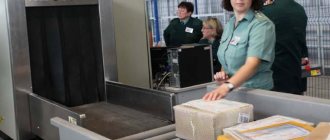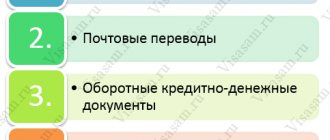In connection with the outbreak of hostilities on the territory of Ukraine, Russia slightly modified the customs regulations for the import of products and goods from various countries. In 2014–2015, with the beginning of the introduction of sanctions against the Russian Federation, the Russian government banned the import of products from the countries of the European Union and some third countries. This list of countries also includes Russia’s closest neighbor, Ukraine.
In 2021, the customs rules of the Russian Federation were not subject to changes. They were simply supplemented by new rules that regulate the ban on the import of certain products of plant and animal origin. It is important to remember that the ban applies even to goods that were purchased outside Russian territory exclusively for personal use.
General import rules
Many who want to cross the Russian border do not know that this country puts forward a fairly large list of products prohibited for import. Therefore, tourists and returning Russian citizens need to familiarize themselves with the list of goods in order to avoid their confiscation directly at customs checkpoints.
The Government of the Russian Federation has established standards according to which food and goods can be imported only in a certain quantity.
Russian Federation Government Building
Those products that exceed the norm must be subject to declaration by arriving people. In any case, it is worth preparing for the fact that customs officers will require an oral declaration of the goods (if it does not exceed the norm). In cases where the norm is exceeded, you will need to fill out a passenger declaration for related goods and food products.
Rules for duty-free import of goods into the territory of the state:
- The main purpose of goods and products is personal use. That is, what the person himself uses directly. But it is worth considering that the list of personal items does not include vehicles.
- It is allowed to import food and goods with a total weight of up to fifty kilograms per person.
- The total cost of imported goods and products should not exceed one and a half thousand euros. In this case, the euro exchange rate is determined by the Central Bank of the Russian Federation.
Personal belongings include goods and items that are used for personal purposes and do not participate in business activities. Regardless of citizenship, an entering individual has the right to import two hundred cigarettes (10 standard packs) or fifty cigars. The main requirement for an individual is age. He must be over eighteen years old. Also, such a person has the right to transport up to two hundred and fifty grams of tobacco per person.
If an individual intends to import food products and goods worth more than one and a half thousand euros, then such products are subject to mandatory written declaration and payment of a duty fee to the state budget.
In this case, the ratio of weight and total cost plays an important role. The permitted weight is fifty kilograms.
Sample of filling out a customs declaration form for the import of goods
If the imported products and goods weigh between fifty and two hundred kilograms, the individual pays a duty for each extra kilogram, starting from the fifty-first. The duty amount is calculated as a percentage of the total cost of the products and is equal to thirty percent. But at the same time, when calculating, each kilogram should cost at least four euros. Such customs rules are relevant only for individuals who import products for personal use.
The import of alcoholic beverages is permitted to citizens of all countries. But the basic rule is the age of majority of an individual, that is, eighteen years of age. For such people, it is allowed to import alcoholic drinks of various strengths in the amount of three liters. You can also bring three liters of beer (alcoholic or non-alcoholic) without paying duties to the budget of the Russian Federation.
If an individual imports alcohol in the amount of four liters, then the person must pay ten euros of duty. If the amount of alcohol is five liters, then ten euros are paid for each liter (over the allowed three).
It is prohibited to import alcoholic beverages in quantities exceeding five liters in total. If “excess” alcohol is noticed at the customs checkpoint, it may well be confiscated by employees of the authorized bodies. At the same time, customs officials even have the right to fine people for non-compliance with the customs regime.
At the same time, it is worth remembering that, even after paying the duty fee to the state budget, “extra” alcohol must be declared accordingly.
Declaration of goods
When importing food and goods for personal use that exceed the norms, an individual must fill out a declaration for these products.
Scheme of the procedure for customs declaration of goods
An individual who has reached the age of eighteen has the right to file a declaration. If an individual is under eighteen years of age, then the declaration is completed on his behalf, in his presence by an adult accompanying him.
You may need different documents for declaration depending on the current situation, but the main ones are:
- Identity document of an individual. For adult individuals, an internal or foreign passport is suitable, and for minors, a certificate of birth can be provided.
- A document confirming the fact of purchase and payment for imported products and goods. Receipts from stores, supermarkets and shopping centers may be suitable for these purposes.
Products from Finland
Due to the fact that over the past two years, Russia has significantly narrowed the foreign market on which food products were previously purchased for the Russian consumer market, many individuals and business organizations have opted for products from Finland.
But even for products from this country, there are some rules for importing food into the territory of the Russian Federation.
Non-prohibited foods include:
- Butter.
- Various kinds of canned food.
- Fish products.
- Sausage.
- Dairy products.
- Margarine.
The basic rule is the presence of sufficient heat treatment of food to eliminate all bacteria and microbes that can cause various ailments and diseases. That is, you can only import those products that no longer require additional heat treatment.
Raw milk products from Finland
But it is worth remembering that an individual has the right to import no more than 25 kilograms of Finnish food products in total per person. In this case, the products must be intended exclusively for personal use (consumption).
If the limit of 25 kilograms is exceeded, then at the checkpoint customs officers have every right to confiscate “excess products” and impose a fine on the person. Certain products without original packaging are strictly prohibited for import into the state. The list of prohibited items includes meat, fish and dairy products.
If the product is not adequately sealed, it may be subject to confiscation by customs officials.
If, in the opinion of customs officials, the packaging is not airtight enough, they have the right to request permission to import this product. Permission can be obtained from Rosselkhoznadzor. Raw meat, even in sealed packaging, is classified as a prohibited product for import into Russia. But you can import fresh fish from Finland. However, subject to the provision of a certificate issued in Finland. This document confirms the safety of the product and that the fish itself was grown in an environmentally friendly natural environment.
It is also allowed to transport sturgeon caviar (but only in production packaging - in a jar), but not more than 250 grams per person. Only raw smoked sausage can be imported. But the main priority is that it should be purchased exclusively in trade organizations (supermarket, store). Also, raw smoked sausage must have a natural casing.
Customs clearance of coffee
Customs clearance of coffee in Russia is carried out in accordance with customs legislation. In order to optimize the costs that coffee transportation and customs clearance will entail, it is important to understand all the rules for importing goods and the accompanying documentation.
Importing countries
The main producing countries of raw materials are located quite far from Russia. This is explained by the climatic characteristics of the ripening of coffee berries - the tree itself is a heat-loving plant, which is extremely detrimental to strong temperature changes. Therefore, coffee trees grow mainly in equatorial, tropical and subtropical regions.
The main volume of coffee imports comes from the countries of South America, Africa, and the Asian region (India, Vietnam, Indonesia).
The main suppliers of coffee in the Russian Federation are the following countries:
- Brazil (world leader in growing and exporting coffee);
- Colombia (the country is best known for its export of “soft” varieties);
- Peru (the most famous is the elite Peruvian Arabica “Chanchamayo”);
- Guatemala (specializes in growing elite coffee varieties);
- Mexico (mainly Arabica beans with a pronounced “sourness” are exported);
- India (fragrant varieties with notes of spice);
- Vietnam (specializes in inexpensive Robusta coffee);
- Indonesia (leader in growing strong Robusta varieties);
- Ethiopia (elite highland varieties of Arabica with a pronounced chocolate taste).
Among coffee importers, Spain and Italy also stand out. They purchase raw materials from countries specializing in coffee growing (for example, Italy purchases up to 40% of all raw materials from India), and subsequently sell finished processed products for export and domestic markets.
Prohibited Products
Over the past two years, a huge number of sanctions have been applied to the Russian Federation by different countries of the world.
It is in this regard that in 2014 the government of the country presented a list of prohibited products manufactured in countries that had imposed their sanctions on the Russian state.
These countries include:
- All EU countries.
- Canada.
- Norway.
- USA.
- Australia.
Prohibited products:
- Meat in any form (frozen, fresh or chilled).
- Pork meat in any form.
- Poultry meat in any form.
- Salted meat.
- Smoked meat.
- Dried meat.
- Dairy products.
- Milk in its purest form.
- Vegetables.
- Fish of different varieties.
- Shellfish.
- Fruits of different types.
- Nuts of all varieties.
- Roots.
- Sausage.
- Meat products.
The list of prohibited products also includes products based on vegetable fats (cheese, cottage cheese). Goods are prohibited regardless of who purchased them or for what purpose. If customs officers notice these products at a checkpoint, they are subject to confiscation, even if they were purchased for a person’s personal use.
Regarding products, the ban does not apply to baby food and alcoholic products.
Transportation Features
The peculiarities of transporting coffee include mainly its high ability to absorb moisture and odors. Therefore, in order to avoid reduction in quality or damage to the entire batch, it is recommended to transport coffee separately from other goods in sealed dry containers with air humidity no higher than 7%.
The transportation itself can be carried out by any type of transport. However, taking into account the geographical location of importing countries, two main methods of transportation are relevant for Russia: sea or air.










